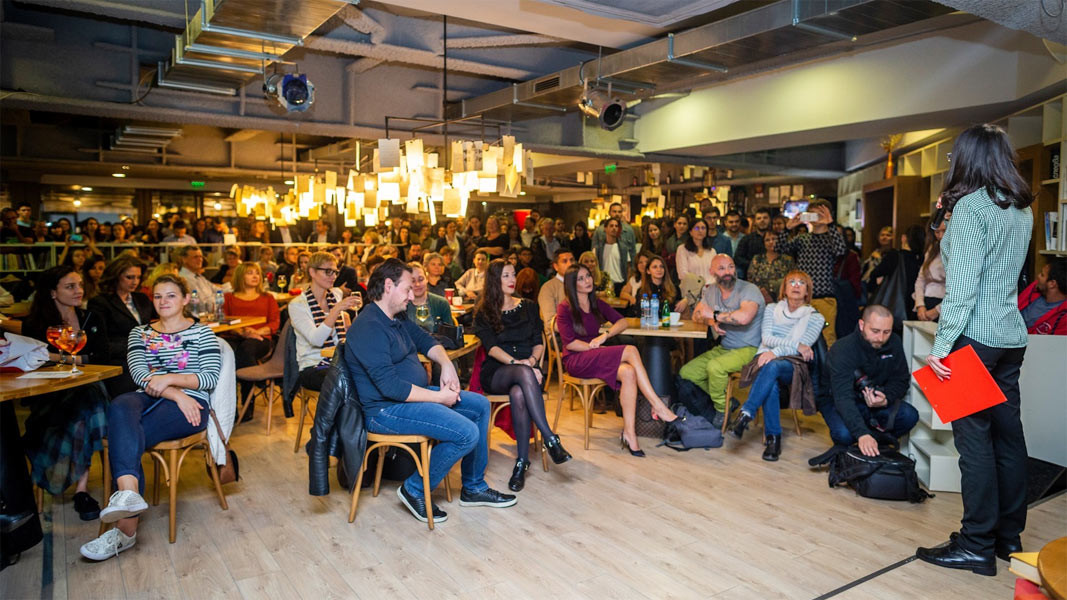Thirty years after the start of the transition from socialism to democracy on 10 November, 1989, there have been a host of changes in Bulgaria. Two generations have been born and have grown up, to whom what went on before 1989 is practically unknown. Their parents’ stories about those times are often very brief or lacking in detail. Their children on the other hand quickly lose interest, stop asking, and start living in the present. Many take the achievements in the political and public domain for granted, never asking themselves how it came about that they are able to travel freely, to get to know and to work in different European countries. Still, Bulgaria stays in their hearts forever, and after a time, many who went to live in other countries come back and go on with their life here.
In his work as a journalist for different online media outlets Daniel Penev has met many Bulgarian expats who have chosen to come back to Bulgaria. Inspired by their personal stories, he decided to put them together in a book, and its presentation in Sofia evoked an enormous amount of interest.
“The fact that hundreds of people came to the presentation of a book telling the inspiring stories of successful Bulgarians goes to show that people thirst for positive news and a positive view of Bulgaria, instead of hearing about accidents, murder, theft and corruption,” the author says. “These 30 years of anger are obviously bearing a different kind of fruit – a desire for something positive, something constructive.”

The stories told in “The people changing Bulgaria” are 30 in number – as many as the number of years that have passed since the start of the transition in the country. The fact that the author is so young “a child of the transition”, born after the events that unfolded on 10 November, 1989, means he is unable to make a comparison of life “before” and “after”, but it does afford him the opportunity to give a definition of his own to the concept of change. To him it is:
“A concept that is open to as many interpretations as there are people on Earth. The reason is that we all have a different prism we look through at values, experiences, and our own environment. To me change is every little step or action undertaken, whether locally, nationally or internationally, which makes life and the world better.”

Daniel entrusted the foreword to journalist Vesselina Sedlarska. His choice fell on her because she was the first journalist to have put her faith in his abilities, and to have helped him build a style of his own.
“It is a book opened in doubt and closed in admiration. Each one of the stories is a lesson in courage. That is why it is more like a playbook of wisdom, of the things not usually found in textbooks but found in the life all around,” writes Sedlarska. There is a short parable illustrating why such a book matters. At the presentation it was read out by journalist Asya Metodieva:
“Once King Akbar drew a long line and asked his ministers: “How can this line be made shorter without being touched?” Birbal, considered to be the wisest man in the land, came forward and drew a second line next to the first, and the second line was longer. This is a book about the people drawing the longer line. There are two ways to make your tower taller than the other man’s tower – by tearing down the other man’s, or by building your own. People of the longer line are not interested in other people’s towers, they build their own. And when they see someone else’s tower that is really tall – they are happy. Because “if someone else can do it so can I” – that is what they believe in. The people who draw a longer line are the people that lead communities forward.”
Daniel Penev says that though all of the stories in the book are close to his heart, the one he finds most inspiring is the story of the entrepreneur Kiril Petkov who runs a successful business - production and distribution of probiotics. He is also one of the people who helped establish an applied research and innovation centre at Sofia University’s Faculty of Biology. Kiril Petkov is also known for his involvement in different causes, like the search operation for mountain climber Boyan Petrov who died in the Himalayas on his way back from Shishapangma peak in May 2018.
Photos: Alexander Naydenov
The centennial birth anniversary of Prof. Riccardo Picchio – a slavicist and an expert in Bulgarian studies of international renown, will be honoured with an exhibition, opening on 31 May at Bulgaria gallery in Rome. The event, organized by the..
A second panorama of African-Caribbean cinema will take place between May 31 and June 1. The Sofia University ''St. Kiment Ohridski'' plays host to the two-day event. It is organized by the African and Indo-Pacific Studies Department and the..
Francophone traditions in Bulgaria have a rich history dating back to the Bulgarian Renaissance. Even at that time, the French culture and language were held in high esteem by the more educated part of our society as a carrier of the European values. The..

+359 2 9336 661
